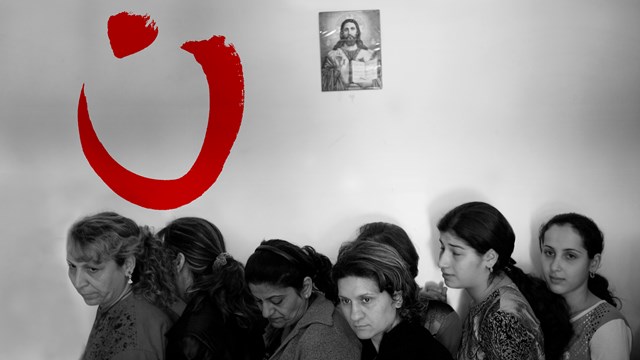
Ah yes, technology. We switched to another internet business package -- with the same provider mind you -- and lost our connection this morning. It's amazing how handcuffed activity in a church office becomes without internet service.
I encourage you to take a look at the comments from yesterday's blog about selfie culture. I appreciate that former co-worker Laura took the time to offer some encouraging words from her perspective working with youth.
The latest issue of Christianity Today magazine includes an article by Philip Jenkins which asks Is This the End for Mideast Christianity? Jenkins is an expert on the global Christian scene and he notes that 2014 has been a disastrous year for the followers of Christ in the region where he and our faith were born. We know that ISIS, the Islamist terrorist group, has been persecuting those who do not follow their hideous brand of faith, including followers of other branches of Islam, Yazidis, and Christians. This is the case in both Iraq and Syria. In situations where there is not violent persecution, Christians are marginalized and feel they must leave. It is a tragedy that the Christian population of Israel continues to shrink because of government policies which make life difficult for them, usually because Christians there are also Arabs.
If the vision of a Christian-free Middle East is too pessimistic, the scale of the disasters that have overtaken some countries is beyond doubt. That experience offers many lessons for us in the West. It is obscene to complain about a “war on Christmas” in the United States when there are Syrian cities without Christians to commemorate their holy days at all for the first time in some 1,900 years. That’s an authentic war on Christmas.
More broadly, these events teach us about the long-term trajectories of Christian history. They show how churches vanish and, more important perhaps, how they survive under the direst of circumstances.One lesson emerges strongly: However often we talk of churches dying, they rarely do so without extraordinary external intervention. Churches don’t die because their congregations age, their pastors behave scandalously, the range of programs they offer wears thin, or their theology becomes muddled. Churches vanish when they are deliberately and efficiently killed by a determined foe.
Once again I invite you to pray for our Christian brothers and sisters and to pay attention to reports about their marginalization and persecution, not just in these countries but it Pakistan and China and elsewhere. I am grateful that the United Church has supported the remnant Christian community in Israel and the West Bank and Gaza.
So are you weary about me writing on this subject (I have fairly often) or is it important to have the nudge? Are you praying?
No comments:
Post a Comment